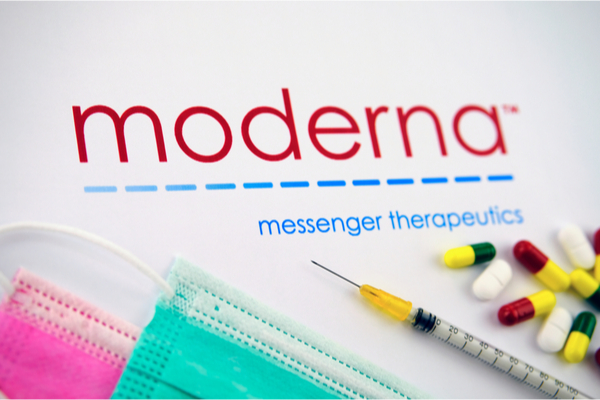As STAT News reports, ever-evolving landscape of Covid-19 vaccines shifted again on Monday, with Moderna winning full approval for its jab from the Food and Drug Administration, and Novavax submitting a long-awaited application to the agency for an emergency use authorization for its vaccine.
The approval of Moderna’s vaccine, Spikevax, makes it the country’s second fully licensed vaccine to protect against SARS-CoV-2. It’s also the first product the Cambridge, Mass., biotech has brought through licensure in the United States. The Pfizer and BioNTech vaccine, Comirnaty, became the first to be fully approved back in August.
Novavax, a biotech based in Gaithersburg, Maryland, also notched a milestone as it filed for authorization of its vaccine, the first time it has sought FDA authorization for a product. Its vaccine, currently known as NVX-CoV2373, is made differently than the Moderna and Pfizer vaccines, which both deploy messenger RNA to teach the immune system to recognize and attack SARS-2 viruses. Novavax’s jab is a so-called protein vaccine, which delivers nanoparticles of the SARS-2 spike protein to the immune system to activate its defenses against the virus. The application is for use in people 18 and older.
“We believe our vaccine offers a differentiated option built on a well-understood protein-based vaccine platform that can be an alternative to the portfolio of available vaccines to help fight the Covid-19 pandemic,” Stanley Erck, Novavax’s president and CEO, said in a statement.
The Novavax vaccine is given in two doses spaced 21 days apart; the company recently announced plans to test a booster shot. The vaccine can be stored at fridge temperature and does not have the elaborate cold-chain requirements of the mRNA vaccines. It includes an adjuvant, a compound that boosts the impact of the vaccine.
Moderna’s Spikevax is currently approved for use in people 18 years and older in the U.S. Until now the vaccine has been deployed under an emergency use authorization — and its booster shoot is still being deployed under an EUA. The vaccine has already been licensed in a number of countries and jurisdictions worldwide, including Canada, Japan, the European Union, the U.K., and Israel.
“The totality of real-world data and the full [approval] for Spikevax in the United States reaffirms the importance of vaccination against this virus,” said Stéphane Bancel, chief executive officer of Moderna, in a statement. “This is a momentous milestone in Moderna’s history as it is our first product to achieve licensure in the U.S.”
Spikevax is approved as a two-dose regimen, even though third doses, characterized as boosters, are already in use in a number of countries, including the United States. The first two doses are given on a 28-day interval, with the booster given five months or more after dose two.
Moderna continues to trail Pfizer in authorizations for teens and children; its vaccine has still not been green-lit for use in anyone under the age of 18 in the U.S. In June it applied for an extension of its EUA to cover children aged 12 to 17, but was informed by the FDA at the end of October that the agency needed more time to assess the risk of myocarditis and pericarditis following vaccination. Both the mRNA vaccines have been linked to an increased risk of the potentially harmful heart conditions.
Moderna said the FDA indicated the review would not be completed before January. The company indicated at the time that it would delay filing its application for an EUA extension to cover children 6 to 11 years of age until the FDA review of the EUA application for teens 12 to 17 has been ruled on.
It’s unclear whether Moderna’s slow progress through the regulatory process is a harbinger for what lies ahead for Novavax, which is already much later seeking authorization than many of its competitors. Moderna announced that it had completed its full license submission on Aug. 25, 2021, but only received the approval on Monday, five months later.
Novavax’s vaccine produced impressive results in a Phase 3 clinical trial, coming in at 90% effective at preventing Covid infection. But the company, which did not own its own manufacturing facilities at the beginning of the pandemic, has struggled to produce the product with the consistency that regulatory agencies insist on before they will agree to allow a vaccine to be used.
Recently there have been signs the company had conquered its challenges, with the vaccine gaining the equivalent of emergency use authorizations from the European Commission and the World Health Organization, as well as Britain’s Medicines and Healthcare products Regulatory Agency. It also received a full license in South Korea.
—
Photo Credit: Ascannio / Shutterstock.com
